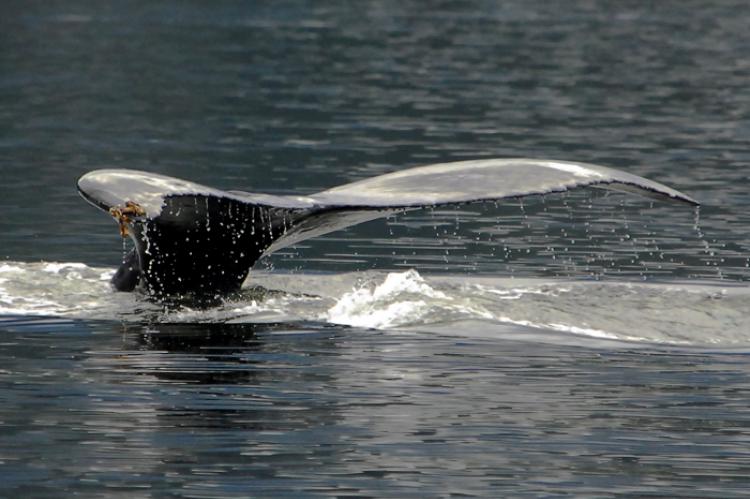Pipeline approval threatens BC humpbacks
Oil tankers and humpbacks on potential collision course
humpback whales on B.C.’s north coast. Susan Pinkus, senior scientist with Ecojustice, said the review panel’s recommendation that the $6.5-billion Northern Gateway pipeline project proceed with conditions is in conflict with protections afforded under the federal Species at Risk Act (SARA). Under a SARA recovery plan, legal protection for the humpbacks’ critical habitat commences in April 2014.The federal government has previously identified tankers as potential threats due to strikes, underwater noise, displacement of whales, and oil spills.
Among its 209 recommendations, the panel recommended Enbridge develop a marine mammal protection plan includes mitigation and monitoring as well as reporting any killed or injured mammals. “The most serious threats Enbridge poses for marine mammals cannot be mitigated by conditions,” said Pinkus. “From a biological perspective, I cannot see how oil tankers could ever meet the preconditions necessary to obtain a Species at Risk Act permit to move through the recently identified humpback whale critical habitat.”
Enbridge has promised to go beyond industry standards to protect whales, through research and speed restrictions on vessels.
For more than a decade, Hermann Meuter and his marine biologist partner Janie Wray have studied whales at their Cetacealab research station on the south end of Gil Island. More than 300 humpback whales currently utilize the area threatened by tankers. In addition, the couple has identified 47 fin whales in the area, mostly in Squally Channel and Caamano Sound.
The panel report said that with “mitigation and considering the success of other ports in mitigating effects, displacement is unlikely. If displacement did occur, it is likely that whales would move to other feeding areas in other locations” on the B.C. coast.” This is an insult, very disappointing,” Meuter responded. “If this is identified critical habitat, we have to make sure we keep it that way. From what we know, the waters around Gil Island are very important habitat for a number of whale species. That’s just a fact.”
According to Jim Darling, a Tofino-based researcher with Pacific Wildlife Foundation, the panel report is full of “management-speak, which means absolutely nothing in the real world and is mostly hypothetical.”
The report amounts to “Northern Gateway basically saying whatever is necessary — whatever they need to say — to get it through, and with no penalty if things do not unfold as they predict or if they just decide not to follow up,” Darling added.


